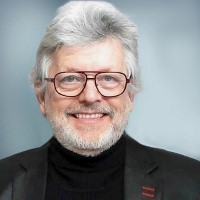Project Business Management
SERIES ARTICLE
By Oliver F. Lehmann, MSc, ACE, PMP
Munich, Germany
“I have learnt that all our theories are not Truth itself,
but resting places or stages on the way to the conquest of Truth.”
– Justus von Liebig

Summary
The article underscores the importance of recognizing and addressing bottlenecks in customer projects to enhance performance, profitability, and resource allocation. It delves into the application of Liebig’s Law of the Minimum to project management and emphasizes how a project’s success is tied to its scarcest resource. Furthermore, it showcases a company grappling with challenges stemming from resource constraints and offers practical solutions to elevate project management and drive better business outcomes.
The Chemist Who Changed the World
The story of Justus von Liebig is one of relentless curiosity, bold experimentation, and a deep desire to understand and improve the world around him. Born in 1803 in Germany, Liebig was destined for a life far removed from the ordinary. His journey from a young alchemist in his family’s kitchen to a revered scientist, educator, and leader would change the face of chemistry, agriculture, and the very way we think about scientific inquiry.
The Young Alchemist and the Seeds of Revolution
From a young age, Liebig was enchanted by the mysteries of chemistry. His parents’ kitchen was often filled with the smell of burning sulfur and the sight of bubbling beakers as he experimented with anything he could get his hands on. Over time, his early fascination with the alchemists’ tales of turning lead into gold evolved into a more serious pursuit of understanding the elements that make up our world. When he was just a teenager, it became clear that Liebig’s future lay not in traditional trades, but in the frontiers of science.
After a brief stint in Paris, where he was exposed to the latest chemical theories, Liebig returned to Germany and, at the remarkable age of 21, became a professor at the University of Giessen in 1824. It was here that his real work began—not just in the lab, but also in the classroom. Dissatisfied with the theoretical nature of chemistry education, Liebig established the world’s first laboratory dedicated to teaching chemistry hands on. The Giessen Laboratory quickly became a beacon for young scientists eager to learn through experimentation rather than mere memorization.
Discovering the Law of the Minimum: A Radical Idea Takes Root
Liebig’s early years at Giessen were marked by a bold questioning of agricultural practices. Farmers for centuries had relied on animal manure to fertilize their fields, yet few understood why it worked. The prevailing belief was that soil contained a “vital force” that plants absorbed. Liebig, however, wasn’t satisfied with this mystical explanation. He believed that plant growth was a chemical process and set out to prove it…
More…
To read entire article, click here
Editor’s note: This series of articles is by Oliver Lehmann, author of the book “Project Business Management” (ISBN 9781138197503), published by Auerbach / Taylor & Francis in 2018. See author profile below.
How to cite this article: Lehmann, O. (2024). Bottlenecks and other Opportunities PM World Journal, Vol. XIII, Issue IX, September. Available online at https://pmworldlibrary.net/wp-content/uploads/2024/09/pmwj145-Sep2024-Lehmann-bottlenecks-and-other-opportunities-2.pdf
About the Author

Oliver F. Lehmann
Munich, Germany
![]()
Oliver F. Lehmann, MSc, ACE, PMP, is a project management educator, author, consultant, and speaker. In addition, he is the owner of the website Project Business Foundation, a non-profit initiative for professionals and organizations involved in cross-corporate project business.
He studied Linguistics, Literature, and History at the University of Stuttgart and Project Management at the University of Liverpool, UK, where he holds a Master of Science Degree (with Merit). Oliver has trained thousands of project managers in Europe, the USA, and Asia in methodological project management, focusing on certification preparation. In addition, he is a visiting lecturer at the Technical University of Munich.
He has been a member and volunteer at PMI, the Project Management Institute, since 1998 and served as the President of the PMI Southern Germany Chapter from 2013 to 2018. Between 2004 and 2006, he contributed to PMI’s PM Network magazine, for which he provided a monthly editorial on page 1 called “Launch,” analyzing troubled projects around the world.
Oliver believes in three driving forces for personal improvement in project management: formal learning, experience, and observations. He resides in Munich, Bavaria, Germany, and can be contacted at oliver@oliverlehmann.com.
Oliver Lehmann is the author of the books:
- “Situational Project Management: The Dynamics of Success and Failure” (ISBN 9781498722612), published by Auerbach / Taylor & Francis in 2016
- “Project Business Management” (ISBN 9781138197503), published by Auerbach / Taylor & Francis in 2018.
His previous articles and papers for PM World Journal can be found here:









